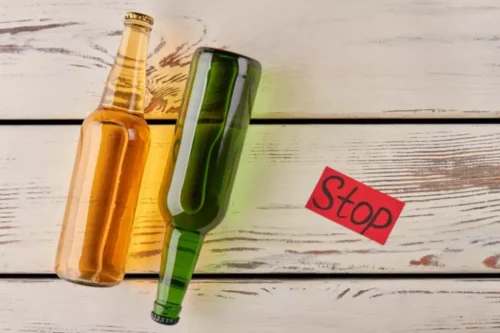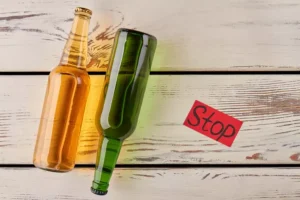
Secondary treatment, also referred to as aftercare, aims at providing you with ongoing support throughout your recovery. The support doesn’t have to end once you finish rehab – you can continue receiving support in the form of further counselling, group therapy, or support groups. If you wish to help a loved one who is in denial about their alcoholism, know that you don’t have to deal with it alone, and there is support out there for you. People in denial may have negative views of people with alcohol use disorders themselves, and don’t want to believe that they have the same problem.

Encouraging Professional Support
- It also leads to financial and legal difficulties, relationship neglect, mistreatment, and even abuse.
- You should express your support in a non-judgemental way and provide resources while also being a listening ear when needed.
- A person with an alcohol problem may struggle to control the amount they drink, how often they drink, where they drink, or when they stop drinking.
- The link between denial and alcoholism suggests that the condition itself (alcoholism) needs to be treated on both physical and mental planes.
Communication is vital in breaking through the walls of denial, and choosing the right time and setting for the conversation is crucial. Opt for a quiet, private setting where they feel safe and comfortable and try to arrange it when they are not under the influence or stressed. The physical symptoms of withdrawal can be incredibly uncomfortable, while the psychological symptoms can take a serious toll. The anticipation of these symptoms can contribute to a deep-seated fear that reinforces denial and prevents the person from seeking help. If you broach the topic too often or too aggressively, threatening legal action https://ecosoberhouse.com/ or rehab, it is likely the addict or alcoholic in your life will begin to pull away and seek comfort in using. Social stigma can be the biggest barrier to treatment for those unwilling to seek treatment.

What Makes Dealing with High-Functioning Alcoholics so Challenging?

Alcoholics use denial as a defence mechanism, to avoid facing problems lying underneath the addiction. The alcoholic resides in a facility for up to 90 days and receives treatments, making it easier to deal with withdrawal symptoms. The best way to help an alcoholic friend in denial is to help them access professional treatment. Friends of alcoholics forget to care for themselves while helping the friend get help.

AUD symptoms
- Here are the different types of alcoholic denial and why people with alcohol addiction may deny their drinking problem.
- Talk to our caring professionals today and take the first step toward living a fulfilling, addiction-free life.
- It’s important to recognize these distinctions to provide appropriate support for individuals with alcohol dependency.
- But common reasons are shame, enablers like families and friends, lack of education, and chemical dependence 15.
- Alcohol addiction can be a very sensitive issue, especially if it’s being raised with the person for the first time.
You may draw a red line somewhere and then take action to reinforce your boundary if it is crossed. You may decide that the addict drug addiction treatment should not be present with you at certain places when drunk or that they have to relocate if they are drunk and the children are home. Calls and contact requests are answered by our admissions team at Help 4 Addiction. We work with a network of addiction rehabs throughout the UK and also some internationally. We do not own any of these clinics and we receive payment for our referral services. By submitting your personal contact details you are providing us with explicit consent to contact you by those means.
- You, too, might realize that your relationship with alcohol is negatively affecting your life.
- Rehabilitation centers, such as Design for Recovery, are designed to help those struggling with alcoholism and in denial.
- Planning and organizing an intervention with professional guidance can prevent potential negative outcomes.
- This could mean making excuses for them or bailing them out of bad situations.
- Make sure to be available for them to talk when they need it during their time in alcohol rehab.
- If you’re struggling to have this conversation, you may also want to think about an intervention.
Interventionists can devise and implement effective intervention techniques to encourage the individual to seek addiction treatment for their addiction. Access to educational materials and ongoing support can be invaluable in addressing alcoholic denial and guiding individuals towards a healthier life. By utilizing empathetic and compassionate approaches, we understand the challenges you or a loved one might face and want to help you overcome them. Don’t hesitate to reach out to experts in the field, such as Sabino Recovery, to gain further insight into alcohol addiction and how to help an alcoholic in denial the recovery process. Your journey to understanding and healing starts with education and awareness.
What Are Some Common Reasons Why an Alcoholic Might Be Resistant To Accepting Help?
Knowing someone cares about their well-being may be a positive factor in their recovery. Encouraging the person to seek professional treatment should always be top of the list of how to help an alcoholic stop drinking. Options available to them include alcohol detox, local support groups, medication, or alcohol rehab such as that offered at Primrose Lodge. When you’re living with a high-functioning alcoholic, your own health is at stake as well as the welfare of your loved one. By getting help for your loved one, you may be able to avoid further consequences of alcoholism and build a healthier future for your family.
